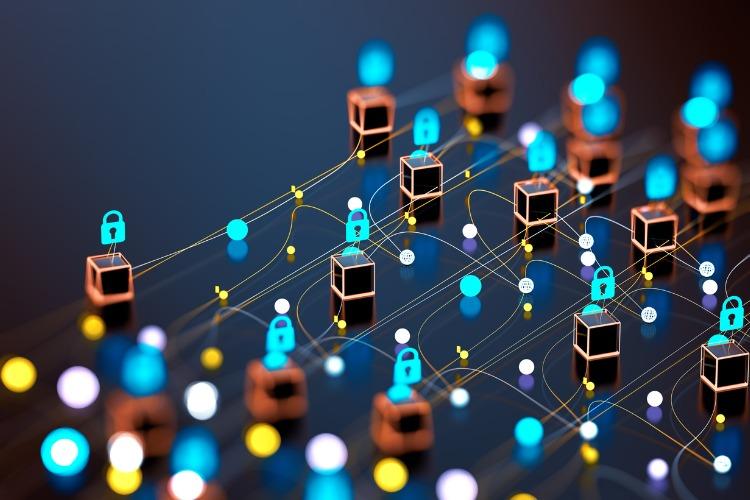The Intersection Of Blockchain Technology And Cybersecurity: What To Watch
As blockchain technology becomes increasingly integrated into various sectors, its influence on cybersecurity is undeniable. The promise of decentralised systems offers stronger protection against threats. However, new challenges emerge with this integration. Understanding how blockchain intersects with cybersecurity is essential for businesses and individuals interested in safeguarding their digital assets.
How Blockchain Reinforces Data Security
Blockchain’s decentralised nature makes it uniquely suited for enhancing data security. Traditional centralised databases are vulnerable to attacks, where a single breach can expose an entire network. Blockchain distributes data across numerous nodes, making it significantly harder for malicious actors to access or manipulate information. This architecture ensures that even if one node is compromised, the rest of the system remains secure. Businesses looking to strengthen their security framework should consider adopting blockchain for their sensitive data handling.
The transparency of blockchain technology further improves data security. Every transaction is recorded and time-stamped, creating an immutable ledger that can be audited at any point. This level of accountability reduces the risk of data tampering or fraud, adding another layer of protection.
Emerging Cybersecurity Risks in the Crypto World
While blockchain can bolster security, staying aware of the emerging risks within the crypto ecosystem is essential. As cryptocurrencies grow in popularity, they become prime targets for cybercriminals. Phishing attacks, wallet vulnerabilities, and exchange hacks are just a few threats that crypto users must navigate.
To mitigate these risks, users should employ strong password protection and multi-factor authentication for their wallets. Keeping digital assets in cold storage, which is offline and inaccessible to hackers, is also an effective way to ensure their safety. Remaining vigilant to phishing schemes and verifying the authenticity of exchanges or platforms is another essential step to avoid potential threats. Additionally, for those looking to stay informed on crypto developments and emerging threats, platforms like NewsBTC provide up-to-date insights into the evolving landscape.
Blockchain’s Role in Preventing Cyber Attacks
Blockchain’s ability to enhance cybersecurity extends beyond data security. Its structure can help prevent various forms of cyberattacks, particularly those targeting centralised systems. One key advantage is that blockchain makes it extremely difficult for hackers to execute distributed denial-of-service (DDoS) attacks. Since there’s no single point of failure in a decentralised system, these types of attacks are far less effective.
Moreover, blockchain can improve identity verification processes, making it harder for cybercriminals to exploit weak authentication methods. Integrating blockchain with multi-factor authentication systems can further secure access to sensitive accounts, reducing the likelihood of breaches. By incorporating blockchain into their security strategies, organisations can significantly decrease the chances of becoming a target for cyberattacks.
Key Considerations for Adopting Blockchain in Cybersecurity
While blockchain offers various security benefits, it’s essential to approach its adoption with careful consideration. Firstly, implementing blockchain technology requires a well-thought-out strategy. Businesses should evaluate their existing infrastructure and determine how blockchain will fit into their overall security model. It’s also vital to choose the right blockchain solution for the organisation’s needs, whether public, private, or consortium-based.
Businesses considering the integration of blockchain into their cybersecurity model should also evaluate legal aspects, which can be complex given the evolving nature of technology and finance regulations. Consulting with fintech lawyers who specialize in both blockchain and financial technology can help navigate these complexities and ensure compliance with relevant laws.
Ensuring interoperability between blockchain and other systems is another key consideration. Seamless integration will ensure the smooth functioning of operations and prevent potential vulnerabilities. Finally, ongoing employee training is crucial. Staff should understand how blockchain systems work and how to manage them effectively to maximise security benefits.
The Future of Cybersecurity with Blockchain Integration
Blockchain technology holds great promise for the future of cybersecurity. As more industries adopt blockchain-based solutions, we can expect to see enhanced protection against emerging cyber threats. With the technology evolving rapidly, ongoing development and innovation will play a key role in shaping how blockchain is utilised for security purposes.
Looking ahead, blockchain could become an integral part of how businesses protect their digital assets and data. As its applications in cybersecurity expand, understanding the nuances and keeping up with advancements will be crucial for staying ahead of potential risks.
Blockchain technology is transforming cybersecurity by offering decentralised, secure systems. As businesses explore this intersection, staying informed about the latest developments will be essential for future success.

